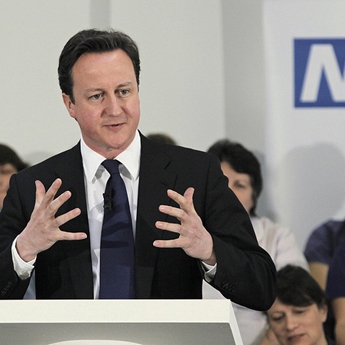The Prime Minister is set to outline plans for a more ‘mature’ approach to the mental health system today by pledging to invest nearly £1 billion to enhance mental health services across England.
Money will be injected into specialist care for new mothers and for increased mental health support in every hospital emergency department across the country.
There is set to be expanded services for teenagers suffering from eating disorders – including the introduction of waiting time targets – as well as plans to provide 24/7 mental health treatment in communities by funding more crisis resolution and home treatment teams.
The announcement follows recommendations for improving mental health services by NHS England, and Mr Cameron’s pledge forms part of a taskforce report that will be published in the coming weeks, detailing plans for mental health in the NHS over the next five years.
It comes as part of a speech being given by the Prime Minister on the Government’s plans to improve prospects for vulnerable individuals and to put an end to poverty.
David Cameron hopes his speech will tackle the ‘taboo’ of mental health and is expected to say: ‘We need to take away that shame, that embarrassment, let people know that they’re not in this alone, that when the clouds descend, they don’t have to suffer silently.
‘I want us to be able to say to anyone who is struggling, ”talk to someone, ask your doctor for help and we will always be there to support you”.’
Critics of the investment believe that Cameron’s plans are ‘too little, too late’, with Luciana Berger, Labour’s shadow minister for mental health, saying: ‘On David Cameron’s watch, mental health spending dropped for the first time in a decade.
‘He has presided over service cuts, staff shortages and widespread poor-quality care.’
Ms Berger believes the funding has also neglected the issue of prevention, stating: ‘It is deeply worrying that so little attention is given to preventing people from needing these services in the first place.’
Pulse October survey
Take our July 2025 survey to potentially win £1.000 worth of tokens













